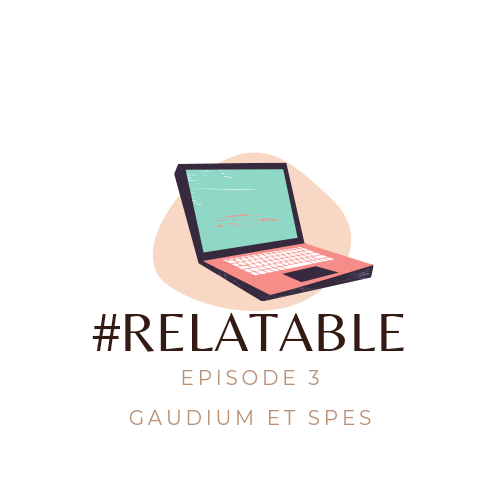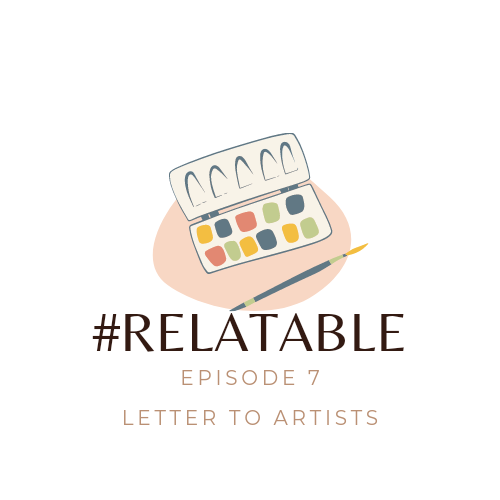#relatable Ep3: Gaudium et spes
- Jun 20, 2021
- 6 min read
Updated: Aug 6, 2021
This is part of a 8-part series where I take a closer look at Vatican documents and distill some gems that you can take with you on your own journey to knowing and loving Him.

Given the modern context we live in, I was amazed to discover Gaudium et spes, a document dating from 1965 to read as such a "contemporary" interpretation of the times. The issues discussed in the document are still of much relevance and I see now how these documents touch on issues that persist in wider society.
Gaudium et spes literally translates to "Joy and Hope" and highlights both the joys and struggles of mankind today (1965 and 2021 doesn't seem too different at this point - different year but same issues). I found it intriguing that the document acknowledges the challenging environment we are living in and points to faith as a counter cultural force. It tackles the broad areas - from economics, to politics, to social issues and anchors the role of the Church amidst the dominant narrative.
I will focus on 3 key areas which touched me deeply and which you may consider for reflection too!
The Community of Mankind
"It must be founded on trust, built on justice and animated by love; in freedom it should grow every day toward a more humane balance"
The importance of interpersonal relationships is highlighted and we are challenged to see every person as a fellow brother and sister in Christ. This applies not only to those who are "similar" to us in terms of socio-economic status, race, religion etc but to any person. This rings true particularly today as we see our own consumerism at odds with persons who need our assistance, our attitude towards foreign workers and migrants, our lack of welcome for refugees who turn up at our shores. Matthew 25:40 places this front and centre "As long as you did it for one of these, the least of my brethen, you did it for me", exemplifying the message that we are called to live out this call to radical love for our neighbour. Our passive stance to helping other people is akin to us rejecting the hungry, thirsty, naked Christ that comes knocking on our door. In a practical sense, this means contributing our resources, time, effort to charitable efforts and to make even a small difference in the lives of the people we meet. It can mean buying a meal for someone who needs it, paying for someone's medicine, visiting the sick. The important thing is to put the message into action.
2. Man's activity in the world
A man is more precious for what he is than for what he has. Similarly, all that men do to obtain greater justice, wider brotherhood, a more humane disposition of social relationships has greater worth than technical advances. For these advances can supply the material for human progress, but of themselves alone they can never actually bring it about.
Romans 12:2 reminds us of the need to not "Be conformed to this world". It is definitely not easy because it is easier to get drawn into the allure of progress. The world prides itself on how far we have come, and technology for example sometimes outpaces our consideration of ethics and the dignity of the human person. Man sometimes desires to take on the role of "creator" instead of "co-creator". The greater the power wielded by man, the less concern he has for his community. Our society is devolving into an individualised one where our needs take priority over the needs of the people we share this world with. We glimpse the effects of this selfishness in the war for resources, the widening income gap which cuts across societies, the unspoken "class" war in many richer countries. Yet, we are reminded that ours is not a Kingdom of this world and we will not find lasting satisfaction in the pleasures of this world, but that of the eternal Kingdom that awaits us.
3. Role of Church in the modern world
Modern man is on the road to a more thorough development of his own personality, and to a growing discovery and vindication of his own rights. Since it has been entrusted to the Church to reveal the mystery of God, Who is the ultimate goal of man, she opens up to man at the same time the meaning of his own existence, that is, the innermost truth about himself. The Church truly knows that only God, Whom she serves, meets the deepest longings of the human heart, which is never fully satisfied by what this world has to offer.
What space does the Church then inhabit in this challenging landscape? The Church plays a few roles
Anchor the dignity of human nature against all tides of opinion
Works of mercy
Close bond between diverse human communities and nations
We live in a society that has sought to undermine and undervalue the human person - reducing the person to a "tool". We face issues of poor working conditions, unjust wages in the labour market. We face human trafficking, the commercialisation of sex, the susceptibility of youth to promiscuous representations of their sexuality. Some may point to a touch of conservative views on the part of the Church, but in truth, the Church promotes and anchors the dignity of the human nature, against all "tides of opinion". We are free to be who we are when we acknowledge that each and every person on this Earth is a child of God and has an inalienable dignity that nothing and no one can take away. The document references the "false autonomy" that man possesses in this age. We think we are "free" to use people, we are "free" to have casual sex, we are "free" to participate in a "free" life. Yet, this is autonomy that has been darkened, it has not been penetrated by the Spirit. We are instead operating on our own selfish beliefs and we do not will the true good of the other. We are instead focussed on our own desires, our own satisfaction and the "autonomy" we exercise is not "free". We are chained - in bondage to our own desires, we are controlled, ironically by our own disordered desires! It is not easy to be a Catholic today then, even as a woman, to say "No" to abortion, to live a chaste life, to live a life that is so counter cultural, but that is exactly why the Church exists - to be the stronghold amidst the tide of opposing opinion. As a Catholic today, how can you also stand your ground, even if it may be a lonely one? How can you withstand the alluring words of society to bow only to the King Himself?
Standing firm in our identity, we are invited to witness to this treasure of faith in the works of mercy we perform for our fellow brothers and sisters in Christ. It means making sacrifices sometimes, setting aside a sum to donate to charity instead of buying the latest laptop. It means taking time off the weekends to serve meals to the elderly when you could be checking out a new cafe with your friends. It means giving your last coin, like the elderly widow who gave everything she had. True generosity means not giving out of our own excess but taking love to its extremes and not turning away when we see need and want. It means reassessing our priorities in life and making charity a central practice of our faith. He who has blessed us with so much would desire that we share it with those who need it most. He is present in the hungry,the sick, the abandoned, and He wants us to encounter Him in these works of mercy.
The thread that runs through communities worldwide amazes me. I lived in a Catholic chaplaincy, with Catholics from all over the world. What always humbled me was that there was a common fabric that bound us all together. Across language, space and culture, we were distinctly Catholic. We practiced our faith in a myriad of ways but as Fr Thomas Dubay aptly puts it in his book Authenticity, "the plurality of the instruments and the diversity of their respective parts combine to produce a single and admirable harmony". The united church has allowed the faithful to exist as One Body - His Body even in these turbulent times. It creates communities of believers who share a common language which we speak and profess and it reminds us that the Church is a living, breathing and incredibly diverse body of Christ!
There is much wisdom to be gleaned from the document and I have only just scratched the surface. I attach a simple Infographic I created that summarises some key points that you might find useful too as you read the document in greater detail, and with prayerfulness.

Here is a link to the document in full: http://www.vatican.va/archive/hist_councils/ii_vatican_council/documents/vat-ii_const_19651207_gaudium-et-spes_en.html
Thank you for coming on this journey with me as we delve deeper into the wisdom of these documents as we start to learn how truly it is #relatable!



Comments